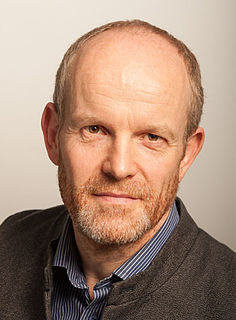Top 77 Shortages Quotes & Sayings - Page 2
Explore popular Shortages quotes.
Last updated on April 20, 2025.
Skilled shortages in America exist because we are shielding our skilled labor force from world competition. [Visa quotas] have been substituted for the wage pricing mechanism. In the process we have created [a] privileged elite whose incomes are being supported at non-competitively high levels by immigration quotas on skilled professionals. Eliminating such restrictions would reduce at least some of the income inequality.
Sadly, many individuals don't know where to find God, and exclude him from their lives. When spiritual needs arise, they may look to the left, the right, or round about. But looking to other people on the same level cannot satisfy spiritual shortages. When the immortal spirit is starved, hunger persists for something more filling. Even when material success comes, there is a hollow ache - if living well falls short of living worthily. Inner peace cannot be found in affluence accompanied by spiritual privation.
As our economy faces up to potential labour shortages due to our ageing population and as it moves to a new level of sophistication to compete with the rest of the world, we're going to need every Australian on board pulling their weight, rejoining the workforce, gaining new skills. Writing off individuals and communities suffering from poverty just creates a dead weight for our economy to drag along.
Probably 99 percent of Nuba are subsistence farmers. They have maybe two or three cattle, a few goats. Now there are food shortages, so they're very thin. But traditionally, they are very strong and muscular. They grow sorghum, okra, a bit of corn, some peanuts. If they need money, they'll sell one of their animals or sell some sorghum.
Greater consumption due to increase in population and growth of income heightens scarcity and induces price run-ups. A higher price represents an opportunity that leads inventors and businesspeople to seek new ways to satisfy the shortages. Some fail, at cost to themselves. A few succeed, and the final result is that we end up better off than if the original shortage problems had never arisen. That is, we need our problems, though this does not imply that we should purposely create additional problems for ourselves.
The problem with water, though, is that the shortfalls don't show up until the very end. You can go on pumping unsustainably until the day you run out. Then all you have is the recharge flow, which comes from precipitation. This is not decades away, this is years away. We're already seeing huge shortages in China, where the Yellow River runs dry for part of each year. The Yellow River is the cradle of Chinese civilization. It first failed to reach the sea in 1972, and since 1985 it's run dry for part of each year. For 1997 it was dry for 226 days.
Everything that's love can't be fear, and everything that's fear can't be love. You're either in one or the other. Almost every time you turn on the television set, you're in fear. You get aligned with fear. When you're aligned with fear, instead of with God-consciousness, you just keep attracting more fear-more stuff to be afraid of, more shortages, revenge, anger, wars, killing, and disease.
Britain has squandered its windfall of natural resources from North Sea oil and gas. Instead of prudently investing the 'unearned income' from nature, to build a safe, clean and green energy supply for the nation, we face unnecessary shortages. But there is still a chance to put the proceeds from liquidating our fossil fuel assets to better and more appropriate use. Instead of oil companies profiteering from climate change and oil depletion, a windfall tax could establish an Oil Legacy Fund to pay for Britain's urgent transition to a sustainable, decentralised energy system
On healthcare we are the prisoner of our past. The way we got to develop any kind of medical insurance program was during World War II when companies facing shortages of workers began to offer healthcare benefits as an inducement for employment. So from the early 1940s healthcare was seen as a privilege connected to employment. And after the war when soldiers came back and went back into the market there was a lot of competition, because the economy was so heated up.
I do think we have a food problem. In 2006, which is the year for which we have the latest data, 35.5 million Americans were food insecure. That means there are 35.5 million Americans who are so hard up at some point during the year that they didn't know where their next meal was coming from. That's a lot of Americans. They don't get reported very much because there's nothing spectacular about people skipping a meal because they're poor. The media tends to ignore that, just as it ignores the sort of chronic food shortages elsewhere in the world.
"The ultimate recession": a recession caused not by failed regulation and bankers' greed, but by very high oil prices, food and water shortages, disappearing forests, accelerating climate change, forced migration and mass civil disruption...The long and the short of it, unfortunately, is this: more politicians still believe that economic recovery depends on continuing to live beyond our means (financially and ecologically) than on learning to live within our means. And that's why the ultimate "Perfect Storm" recession still looms on the horizon
According to the U.N., more than 2.7 billion people will face severe water shortages by 2025. Many social scientists predict that the next big wars will be over water. Nevertheless, the average American family blissfully consumes 300 gallons a day, when you add in watering the lawn and washing dishes, clothes, and cars.
Economists may not know much. But we know one thing very well: how to produce surpluses and shortages. Do you want a surplus? Have the government legislate a minimum price that is above the price that would otherwise prevail. That is what we have done at one time or another to produce surpluses of wheat, of sugar, of butter, of many other commodities. Do you want a shortage? Have the government legislate a maximum price that is below the price that would otherwise prevail.
As we move forward, you cannot resolve the potential food crisis or shortages without science being part of the solution. Science has to be part of the solution but African governments - and these are decisions for governments, whether they embrace or do not embrace genetically modified food - and for the moment, most African companies do not accept genetically modified seeds.
Here in the Great Lakes region, a fourth year in a row of declining water levels has caused millions of dollars in losses for shipping companies, marinas and other businesses and prompted further restrictions on future water withdrawals for expanding suburbs. "A lot of people just can't believe that we may be running out of water, living this close to the Great Lakes," said Sarah Nerenberg, a water engineer with the Northeastern Illinois Planning Commission, which conducted the study on shortages.
Say that Congress legislates gasoline price controls that sets a maximum price of $1 a gallon. As sure as night follows day, there'd be long lines and gasoline shortages, just as there were in the 1970s. For the average consumer, a $1.60 a gallon selling price and no waiting lines is a darn sight cheaper than a controlled $1 a gallon price plus searching for a gasoline station that has gas and then waiting in line. If your average purchase is 10 gallons, and if an hour or so of your time is worth more that $6, the $1.60 a gallon free market price is cheaper.















